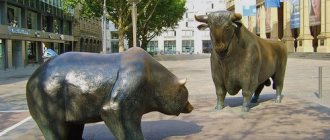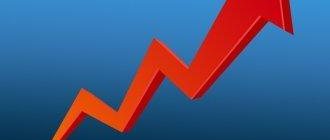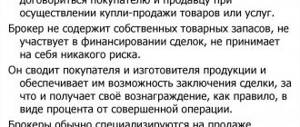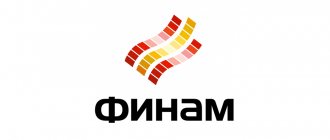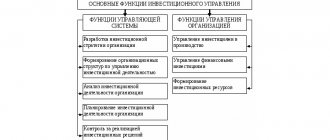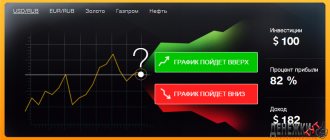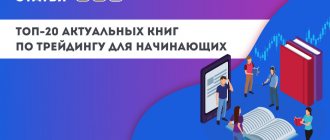Obtaining quality knowledge
Everyone who begins their investment journey asks the question: “where to get high-quality basic knowledge?”
The topic of trading in financial markets is very broad and includes a large number of different areas: stocks, bonds, currencies, forex, derivatives, etc. It’s hard for a beginner to navigate all this.
There are a huge number of opportunities to gain this knowledge on the Internet. Online schools, experts on YouTube, Instagram, specialized sites, etc. But the question arises: “how high-quality is the knowledge obtained in this way?” With the exception of special online schools and universities, private experts and “opinion leaders” most often do not provide correct and competent basic knowledge. But it is the initial fundamental information that is needed in order to choose your specialization as a trader based on this knowledge.
Why is it good to gain knowledge through training from brokers?
Many brokerage companies have their own training departments. The level of information provided varies from the most basic - beginner to specialized, professional.
Brokers assemble a staff of employees who have higher specialized education. The authors of the courses are not just experts, but people with extensive experience, practice and high-quality fundamental knowledge.
Therefore, learning to trade from a broker is a guarantee of the quality of the information provided. You can be sure that you are receiving high-quality and practically applicable knowledge.
There is a large selection of brokers from whom you can receive training. Courses are available free and paid, for different levels of student training. You can choose distance learning or face-to-face.
Profession broker: description, pros and cons, features of training courses
Reading time: 5 minutes(s) Due to the increasing popularity of investing in securities, the relevance of the brokerage profession continues to this day. However, this specialist is involved not only in stock trading, but works in many other areas of the economy. Broker training can take place at a university, college or special courses.
Who is a broker: what do you need to know about the profession?
Most people strongly associate the word “broker” with a specialist involved in trading various securities. In reality, this concept is much broader and means a person who provides intermediary services in a variety of areas of activity where they are required. From English “broker” is translated as “intermediary”. Here are the types of brokers:
- stock broker;
- Customs Broker;
- mortgage broker;
- insurance broker;
- freight broker;
- aircraft broker;
- credit broker.
Recently, with the development of the cryptocurrency market and the emergence of exchanges where they are traded, a relatively young type of profession has appeared - a cryptobroker.
Tasks and Responsibilities
Here are the tasks a broker usually performs (using the example of a stock exchange):
- buys and sells lots of securities, foreign currency on special trading platforms intended for this;
- conducts an analysis of the securities market and, on its basis, makes decisions on their acquisition or sale;
- establishes business contacts with other brokers, sellers of securities, foreign currency;
- negotiates the acquisition or sale of securities;
- provides intermediary services in the sale of securities or foreign currency;
- if necessary, opens a deposit account or safe deposit box in a bank in the name of the client to store funds or securities;
- advises clients on the execution of certain transactions, their prospects and feasibility, possible consequences and risks.
The responsibilities of representatives of other areas of specialty, of course, will differ, but the essence remains the same - carrying out various operations (customs, trade, insurance, and so on) for the client or on his behalf.
Work and salary
It is impossible to say anything definite about a broker’s salary. The fact is that he receives interest from every transaction made. Therefore, in fact, his income is unlimited and can reach hundreds of thousands of rubles per month.
As for the career growth of a representative of the profession, in the usual understanding of this term it is impossible. The only opportunity for a specialist to develop is to improve his skills, expand his professional knowledge, which leads to improved efficiency of transactions and, as a result, a significant increase in earnings. In addition, a broker can eventually open his own brokerage office and head a staff of several specialists.
It is quite difficult for a representative of the profession to find employment: there are very few vacancies not only in provincial cities, but even in Moscow and St. Petersburg. This is understandable: a broker’s work is paid quite highly and there is simply no staff turnover in this profession.
Pros and cons of the profession
Here are the advantages of the specialty:
- high income;
- free schedule;
- the opportunity to open your own business.
And these are its disadvantages:
- low prospects for career growth;
- difficulty of employment;
- often – irregular working hours.
How to become a broker?
What skills are needed?
Here are the skills a representative of the profession will need (using the example of a specialist working on the stock exchange).
- Good knowledge of the principles of functioning of the securities market. The broker must know how the securities market works, what leads to an increase in their value and what leads to a fall, and be able to predict such changes.
- Knowledge of general principles of economics. The exchange, like any market institution, operates on the same principles as other similar trading institutions. A representative of the profession should have an idea about them.
- Good reaction. This may sound strange, but a specialist needs a fairly good reaction. If the price of any shares rises, you need to have time to buy them, and this is not always possible, since they are quickly snapped up by competitors. Therefore, transactions must be carried out quickly.
- High stress resistance. Trading on the stock exchange is always stressful. And the broker must endure it without consequences for the psyche. Otherwise he will not be able to work in this area.
- Communication and negotiation skills. Any trade requires from those who engage in it the ability to communicate with people, negotiate, and sociability. Securities trading is no exception.
What education is needed and where can I go?
To obtain a profession, you can complete:
- higher education institution (academy, university, institute);
- secondary specialized educational institution (technical school, college);
- specialized brokerage courses.
What exams do I need to take?
Brokers are trained at economic departments of universities. To enroll in them, you will need to pass the Unified State Examination exams in the following disciplines:
- Russian language;
- mathematics;
- social science;
- foreign language.
To enter a college or technical school, only Russian language and mathematics are required. And to take courses you don’t need to take anything at all: just pay for educational services.
How long to study after grades 9 and 11?
Studying in a secondary special educational institution after the eleventh grade will take two years and ten months. If you enroll after completing nine grades, the duration will be longer: three years and ten months.
Is distance learning possible?
Specialties can also be studied remotely. To do this, you can take advantage of online courses conducted via Skype. Their advantage is that they are cheaper than offline courses, but upon completion they are issued exactly the same official certificate confirming completion of the training.
In addition, to study at a distance, you can enroll in the correspondence department of a university or secondary school. True, you will have to study part-time for one year longer than with full-time training.
Where to study to become a broker?
Universities and academies
Here are the Moscow higher educational institutions where you can study to become a broker.
- High School of Economics. The cost of studying is 400,000 rubles per year.
- Russian Economic University named after G. V. Plekhanov. For a year of study at this university you need to pay 270,000 rubles.
- Financial University under the Government of the Russian Federation. The price for a twelve-month study here is 423,000 rubles.
- All-Russian Academy of Foreign Trade. The cost of one-year training is 360,000 rubles.
- Institute of Industry Management of the Russian Academy of National Economy and Public Administration under the President of the Russian Federation. For one year of study you will need to pay 290,000 rubles.
Below is a list of five St. Petersburg universities that have a similar training program.
- St. Petersburg State Economic University. The cost of studying is 198,000 rubles per year.
- Baltic State Technical University "Voenmech" named after D. F. Ustinov. The cost of two semesters of study at this university is 104,000 rubles.
- St. Petersburg State University of Civil Aviation. For one year of study they will ask for 148,270 rubles.
- St. Petersburg State University. The cost of study is 239,000 rubles per year.
- St. Petersburg State Agrarian University. The price of training is 89,440 rubles for one year.
All listed universities are state-owned and receive funding from the budget. Therefore, they offer free training opportunities. As for its duration, it is four years for bachelors and six years for masters.
Colleges and technical schools
Here are five secondary educational institutions in Moscow where you can get a specialty.
- Moscow Industrial and Economic College. A year's education at this secondary school costs 82,000 rubles.
- Humanitarian College of Economics and Law. For one year of study here you will need to pay 102,000 rubles.
- Moscow Industrial and Economic College. The cost of study is 96,000 rubles per year.
- Moscow Multidisciplinary College named after L. B. Krasin. The price of training is 121,000 rubles for one year.
- Financial College No. 35. Twelve-month training here will cost a student 101,000 rubles.
And these are similar colleges and technical schools in the northern capital.
- Petrovsky College. The cost of training is 47,000 rubles per year.
- Economic College of St. Petersburg. The price for a year of study is 70,000 rubles.
- College of Electronics and Instrumentation Engineering. The cost of one-year training is 56,000 rubles.
- College of Management and Economics "Alexandrovsky Lyceum". The price of study is 48,000 rubles.
- St. Petersburg Technical College of Management and Commerce. For twelve-month training you will have to pay 39,800 rubles.
All of these secondary educational institutions (with the exception of the Humanitarian College of Economics and Law) are state-owned, therefore they provide the opportunity to study for free.
The duration of training will be two years and ten months for those who entered after the eleventh grade, and three years and ten months for those who entered after the ninth grade.
Courses and trainings
Here are the broker courses in Moscow you can take to master this profession.
- Educational. Price – 40,000, term – three weeks.
- BCS "Trading". Cost – 3,000 – 8,000, duration – one day.
- Educational. Cost – 20,000, time – one week.
- "Alor Broker" Cost – 34,000, term – one month.
- Moscow Exchange School. The courses are free and last one day.
There are similar training programs in St. Petersburg.
- Training center - Academy of Foreign Economic Activity and Logistics "SPHERE". Cost – 25,000, term – one and a half months.
- "Snowkiting Malinasport St. Petersburg." Price – 18,000, term – one month.
- "FINAM - St. Petersburg". Price – 22,000, term – four weeks.
- Courses "Broker Real Estate". Cost – 16,000, time – one week.
- Educational. Price – 20,000, duration – one month.
A broker is a profitable profession that requires its representative to have a good knowledge of the economic principles of the functioning of the market, attentiveness and communication skills. You can get it at a university, college or special courses. However, the specialist has practically no prospects for career growth, and it is very difficult for him to find a job even in Moscow. The graduate must take this into account when choosing a future profession.
Did this article help you? We would be grateful for your rating:
14 1
Online (distance) trading training
Which brokers provide online training services. Distance courses, webinars, videos.
- FINAM - courses, master classes, video instructions on trading on stock exchanges, financial literacy, specialized courses in algorithmic trading. Courses are divided by level: beginner, advanced, professional. There are paid and free courses.
- Otkritie Broker - free online trading training, courses for traders on the stock market from the Otkritie broker
- BCS Broker - courses for traders, trading training for beginners, webinars, various levels of courses from beginner to professional
- Investments 101 from BCS Broker - online platform for distance learning trading for beginners from BCS
- ALOR - online courses from broker ALOR
- CERICH - courses from CERICH aimed at advanced and stock market professionals
- Sberbank - online courses for beginning investors from Sberbank
- VTB - mini-courses with basic information for those starting their way in investment
- Alpha Direct - a large number of webinars and videos for beginners
- UnitedTraders - specialized courses, individual lessons with a trader
How to play on the stock exchange on the Internet for a beginner: step-by-step instructions + examples
Next, you will receive clear steps on how to play and win on the exchange. You only need to follow a plan that will lead you to a successful start.
Step one - training
Yes, this is what we discussed in the first part of the article. Under no circumstances should this be neglected. Choose a learning method that suits you and devote an hour or two a day to it. There is no need to rush to start practicing. Famous investors say that it takes several years of fruitful study to obtain a proper trading education.
Thanks to modern technology, you have the opportunity to study while sitting on your couch at home. Reading one book will not make you a genius trader. But you will get the basics, with which the further path will be much easier.
Step two – opening a demo account
For the first steps, it is better to open a demo account. You can practice there, correct your mistakes, and consolidate your knowledge. Treat it with complete seriousness and responsibility. Imagine that you are trading with real money. Here are a few exchanges that offer the convenience of using a demo account:
A.Markets
Allows you to open an account to invest in the most popular stocks. Explore more than 250 trading instruments.
Forex EuroClub
A training account at a dealing center. Unfortunately, they don't have a phone app, but the interface on the website is quite user-friendly.
Full-time education
Brokers who provide full-time training at their training centers. A large number of Russian cities are available, look at different brokers.
- Courses from FINAM - a large number of face-to-face courses from the FINAM company in all areas related to trading in the stock, foreign exchange and other markets, financial literacy. There are free and paid courses. Training takes place in various cities.
- Opening Broker
- BCS Broker - face-to-face courses from BCS
- ALOR - schedule of face-to-face courses from ALOR in Russian cities
You may find it useful:
The best apps for investing and trading
Target? Term? What assets? What is the risk?
The best services for stock analysis
Top 5 tips from professionals: how to achieve success in online trading
To minimize errors and take control of emotions, traders use clearly positioned trading systems that allow them to bring actions to automation, analyze errors and correct them.
There are the following main types of vehicles:
- Trending.
- For a breakout of a level or a rebound from it.
- For working in a channel.
Based on the degree of human participation, mechanical, semi-automatic and automatic trading systems are distinguished.
Establish strict discipline
The first thing a stock player should learn is discipline.
Greed, fear, hope, regret are bad advisors. Ludomania (addiction to gambling) and tilt (violation of logic when making losses) can reset your account.
A speculator must be able to:
- enter a deal only when the system signals;
- place a stop order;
- stop working after a series of losses and study the errors.
Limit the trade to the amount you are willing to lose
Depending on the timeframe, you can set your maximum losses for a month, a week, a day, or 1 trade.
For example, if the loss limit for 1 open position is 1% of the deposit, and the acceptable weekly loss is 5%, then 5 negative trades per day should force the trader to stop trading for a week.
Such requirements have been developed by the practice of working on the exchange and serve to prevent the loss of a deposit.
Limit losses on every trade
In the over-the-counter Forex market, the most commonly used leverage is 1:100. Conditions for margin call - forced closing of a position - from 70% of the amount in the account. If you incorrectly calculate the lot size, you can lose almost all your money in 1 trade if the price goes in the opposite direction.
One way to limit losses is the risk formula as a percentage of capital. For conservative trading, it is acceptable to risk 1-2% of the money in the account. Transactions for 4-5% of the deposit are an aggressive high-risk strategy. To simplify the calculation, you can use the MM calculator for MT4 ⇒
Learn from your own experience
Most professional speculators recommend that beginners keep records from their first days on the market.
Accounting for transactions is needed primarily to work on mistakes and improve your trading system. The accumulated statistics will help you see what you need to pay attention to when preparing and executing a transaction.
The lack of documented feedback makes work on the exchange unstable.
Learn to wait
A trader must enter the market and close positions only according to the rules of the trading system.
Most of the time it waits for suitable conditions:
- trend, channel formation, level breakdown;
- moment to enter;
- signal to exit the deal.
You should learn to calmly stay outside the market (“in the cache”) if there are no necessary conditions for work.
If the trading direction is chosen correctly, the price still rarely moves without pullbacks. A novice speculator, afraid of a possible trend reversal, unable to wait, tries to quickly take a small profit and, as a result, loses money.
Courses for beginners
Lists of courses for newcomers to the market, by area
Financial literacy
- Financial literacy from A to Z
- Individual investment account: Your new opportunities - introduction to legislation, types of individual investment account, which tax deduction is right for you
Stock market
- Quick start: first transactions on the Russian stock market - 20 steps, 2-3 minutes each. From the course you will learn what the stock market is, how to choose your trading strategy, when to sell and when to buy shares
- Bonds: selecting, evaluating, buying - why are bonds needed, what does their rate depend on, how is bond income obtained, practice of bond transactions
- Quick start: investment portfolio on world markets - a course on how to put together a good investment portfolio on various world exchanges
- Easy start - step by step, from simple to complex, you will learn how the securities market works
- Currency market
FOREX
- Quick start: first transactions on the FOREX market - a course that helps you master the basics of trading on the FOREX market
- Technical analysis of the FOREX market
Basic face-to-face courses for beginners
- Russian market for beginners - a basic course that explains how to take your first steps in the Russian market. Paid course, 3000 rubles
Social trading - social trading and copy trading
There are social networks that are created specifically for traders and have built-in functionality for carrying out transactions and exchanging among themselves:
- signals for entering the market;
- graphs;
- performance results.
Repeating trades of leading traders can greatly increase trading profitability.
How social trading works
Social trading first appeared in Russia, 1 month ahead of a similar project in the USA.
The threshold for connecting to a system that has access to the market is 50 thousand rubles. and higher. Such requirements are explained by the need for affiliated participants to automatically repeat all transactions of the strategy author with exchange instruments.
For example, the comon.ru service has 470 trading systems from which an investor can choose. Metaquotes also has a similar one - a built-in service from Metatrader.
Top 3 best platforms
Platforms differ in the quality of signals for entering the market and closing orders, the number of participants, and the security of funds placed in the system.
Share4you service from Forex4you
The Forex4yu company offers its service for copying transactions, which has proven itself for several years.
The service is ideal for beginners, as it allows you to copy transactions of successful traders, whom you can select on the website and connect specifically to their accounts.
There is no need to worry that a trader will steal your money, because it is always in your account and you decide when to stop copying if it does not bring you profit!
CopyFX service from Roboforex
The Roboforex group of companies offers the CopyFX investment platform for copying transactions.
Advantages of the system:
- minimum entry threshold - from $100;
- there is no need to delve into the intricacies of trading and constantly be “in the market”;
- for a trader - the opportunity to receive additional income by copying his strategy.
The disadvantage is common to all exchange trading - the possibility of losing funds, because... CFDs are complex, high-risk instruments with high leverage.
Independent platform Zulutrade
The platform allows you to make 3 types of transactions:
- independently determining entry points;
- automatically copy experienced traders;
- combined approach.
A trader can:
- create a list of signal providers;
- change the lot size;
- determine volumes for currency pairs;
- stop work for the selected period.
Courses for advanced traders
- Basics of Elliott Theory - technical side of Elliott Theory, common forms of corrective and impulse waves, simple ways to identify waves and market cycles, strategies for working with Elliott Theory
- Three screen system
- The Ichimoku system is a tool for analyzing the market and making decisions about opening positions
- Basics of classical technical analysis
- Active trader - who is a trader, and why is it difficult and painstaking work?
For professionals
- Algotrading School - learn everything about trading robots - a unique video course containing the most relevant and applied knowledge about algorithmic trading. (paid course 24,900 rub.)
- Algorithmic trading capabilities in MetaTrader4 - unique opportunities for algorithmic trading implemented in the MetaTrader4 trading terminal
As well as an additional service, I would like to introduce a service from Instaforex - ForexCopy
I won’t tell you for a long time, just watch the video below, but here’s a clear diagram of how the service works:
- The service has monitoring of traders, which you can select personally, having previously sorted them according to the parameter you personally need.
- Simple registration - just open an account, top up, choose whose transactions to copy and that's it.
- TOP traders are highlighted.
- Answers to frequently asked questions.
- Excellent support on the broker's website.
And the promised video:
Pros and cons of social trading
By participating in social networks, a trader:
- gets the opportunity to consult and discuss the market situation;
- uses the developments and templates of other participants;
- has access to the knowledge of more experienced traders;
- earns additional money for others using his strategy.
Disadvantages of social trading:
- The need to pay for access to the vehicle.
- Possibility of distortion of information about the results of the proposed system.
- Software glitches and errors cannot be ruled out.
- Sudden changes in the market situation can make any strategy unprofitable.
Forex training from Alpari
For beginning traders, Alpari has prepared a free basic online course (five lessons of approximately two hours each). Training can be completed remotely or at the company’s office (for example, in Moscow, Barnaul, Krasnodar, Yekaterinburg and Omsk).
The purpose of the course is to give beginners basic concepts about the foreign exchange market, allowing them to conduct independent Forex trading.
The first lesson is devoted to the history of the emergence of exchange instruments (futures, currencies, commodities and securities). The specifics of the International Forex currency market are examined in detail. The second lesson covers basic concepts: slang, terms, principles of price calculation and factors influencing the market.
The third lesson is entirely devoted to graphical analysis (types of charts and rules for their construction, trend lines and channels).
In the fourth lesson, the beginner masters the MetaTrader 4 trading terminal (installation of the program, basic functions and hot keys, types of orders and transactions on a demo account).
At the final fifth lesson, the future trader is taught to open real and demo accounts, and is also introduced to the services of Alpari (PAMM accounts, structured products, binary options).
It is worth noting that in addition to the Basic Course, Alpari offers beginners more than 50 free training seminars. You must register for them online no later than two hours before the start of the class. You can check the schedule of seminars and register for any of them on the company’s official website.
Free basic course TeleTRADE
The basic free training course consists of three theoretical and three practical lessons.
The introductory stage (theoretical part) includes three lectures of 1.5 hours in the morning or evening.
The authors of the course believe that after listening to three introductory lectures, the “student” will be able to honestly answer the question: “Am I interested in the foreign exchange market at all?”
The theoretical part covers such issues as the advantages of the Forex market, the trading process and trading systems, factors influencing quotes, “good” moments for selling or buying currency, methods for analyzing the behavior of currencies and minimizing trader losses.
In the practical part, the future trader, together with the teacher, will study the trading terminal and try his hand at a demo account.
Each lesson is divided into two parts (about an hour each). In the first, the personal consultant explains the introductory concepts of the lesson (tools, tactics and strategies). In the second, the instruments discussed are used in trading on a demo account.
Upon completion of the basic training course, the student receives a corresponding certificate. Let us note that TeleTrade has its representative offices in many large cities of Russia. For example, in Moscow, Kazan, Voronezh, Yekaterinburg, Krasnoyarsk, Perm, Rostov-on-Don, Nizhny Novgorod and others.
But if for some reason it is not possible to take a basic course in the office, a beginner has two more options: distance learning and video training.
The easiest way is to study 24 short lessons posted freely on the company’s website. Each lesson examines in detail one aspect of trading or a specific term. For example: the importance of central banks for traders, stop loss and take profit, the impact of default on the foreign exchange market, concluding a purchase transaction and others.
| - for beginners | - advanced | - professionals | - everyone |
Learning process
ALOR BROKER invites you to take courses for stock traders. A set of specialized trainings, seminars and webinars on how to become a trader will allow you to learn the basics of the stock market, electronic trading in stocks, bonds, futures, options and other financial instruments. The schedule of upcoming classes in your city dedicated to intraday trading of securities and the psychology of traders can be found above.
About company
The creation of a center for training traders OpenTrainer is an initiative. The company launched training courses immediately after opening, or almost immediately.
True, the number of webinars and training courses at that time was small.
Today the training service is quite popular. Over the past few years, the center has trained and graduated more than 300,000 students.
The main advantages of studying at the center:
- Convenient payment method;
- A huge amount of free material;
- You can get discounts on promotions for paid courses;
- Webinars and seminars are made available for free after 7 days.
The main mission of the center is to provide simple and accessible trading training to everyone.
What to look for when choosing courses for traders - 4 main points
A quality training program must meet certain criteria.
I list them below.
Point 1. Classes should be held individually or in groups of 3-4 people
The only exceptions are club days - when a large audience gathers and listens to the presenter. At such events, successful traders talk about their success and share secrets.
Paid classes, ideally, should be conducted in a “ 1 on 1 ” format so that you feel free, can ask any questions to the teacher and not regret the money spent.
Point 2. The duration of training should depend on the beginner’s initial knowledge
You must perceive information normally during the learning process. If you feel overloaded, you understand that the material is not being absorbed, you need to take a break.
Example
no more than two are held per week , so that everything is comprehended. Between theory and practice at home, which is then discussed with the trader.
So if a broker takes money, demand appropriate quality.
Point 3. When training, attention should be paid to setting the right goals
It's bad when there is only one theory. But pure practice without understanding the market is no good.
A good course develops the ability to navigate market quotes (the Elliott wave principle is very helpful here, read about it in the article “Trader”), analyze news data and benefit from all this in the form of money.
In addition to strategies, you need to pay attention to capital and risk management. If you know how to find promising deals, but invest 70% of your money in them, you will definitely end up merging 2-4 times.
Point 4. The courses should not contain unnecessary information
Only direct training will give you an understanding of what information is useless to you. If a teacher talks a lot about himself, this is not always a bad thing, he is passing on his trading skills to you. It is only important that these stories go in parallel with the development of the stock exchange game.
What is superfluous for you will be what you do not understand, because the brain tends to throw away what is indigestible as unnecessary. So ask questions on all incomprehensible aspects, “bite into the granite of science,” and extract everything you can from your training.
The criteria by which I selected the courses
Like brokers, many courses are “unfair”, meaning you pay to gain a ton of new knowledge, but only receive a flood of water. Therefore, I had certain criteria by which I made the list:
- Expertise of the authors. I mentioned some authors in the descriptions. By this I emphasized that the course was taught not by a grandfather in the village, but by an expert in the field of trading.
- Price. The cost of training also plays an important role. You are just learning how to earn money, so I chose programs for people with different incomes and capabilities.
- Reviews. It is also important to read real positive reviews from students. And I've met people like that.
Therefore, all the courses listed have passed my review. Not a single important detail is missed!
"Opening Broker" - How to Open a Demo Account for Trading?
Placing large investments in selected instruments involves high risk. In order for the client to gain trading experience without fear of financial losses due to errors, the broker strongly advises the beginner to evaluate the effectiveness of trading and try to operate independently on the exchange through a special training account.
Before starting to work on a real working terminal, the trader is offered to use a demo version of the terminal, providing access to all trading tools.
When making virtual transactions, the client is guided by real quotes and events on the stock exchange. If the first transaction experience is unsuccessful, you can re-register a demo account.
To work with a demo account, the client must:
- Complete the simplest registration .
- Download the required distribution from the link in the letter from the broker.
- Install the program.
- Log in using the username and password provided by the company.
By using video tutorials, reading educational articles and participating in webinars, any beginner will gain sufficient experience in a short time to navigate the stock exchange.
It is not without reason that this is the preferred choice for investors taking their first steps in trading. The broker highly values the trust shown and is improving its work aimed at promptly connecting and training newcomers.

